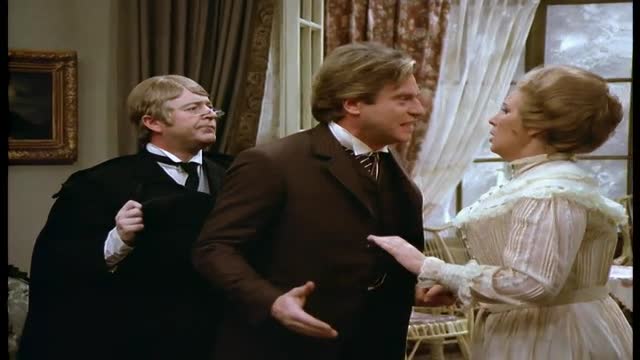Having initially studied piano and theory from 1947 at the University of Vienna and the Vienna Music Academy, in 1950 Eberhard Waechter began to take singing lessons with Elisabeth Radó. He made his operatic stage debut at the Vienna Volksoper as Silvio / Pagliacci in 1953 and the following year joined the Vienna State Opera. Here he quickly established himself as a singer of note, making a strong impression as Posa / Don Carlo in 1956.
The same year saw Waechter’s debut at the Salzburg Festival as Arbace / Idomeneo and at the Royal Opera House, London as the Count / Le nozze di Figaro. Later Salzburg roles included the Mozart Count (1958), the title role in Don Giovanni (1960–1961) and Orest / Elektra (1964); while at Covent Garden he returned to sing Amfortas / Parsifal, Renato / Un ballo in maschera (both 1959) and Don Giovanni (1965), all with Kempe conducting.
At the Bayreuth Festival Waechter first sang in 1958 as Amfortas, repeating this role in 1959–1960 and 1966. Later Bayreuth roles included Kothner / Die Meistersinger von Nürnberg (1958–1959), the Herald / Lohengrin (1958–1960), Kurwenal / Tristan und Isolde (1962, 1966) and Wolfram / Tannhäuser (1964, 1966). He appeared at the Paris Opera in 1959 as Wolfram and with the Chicago Lyric Opera in 1960 as the Figaro Count. At the beginning of 1961 Waechter made his debut at the Metropolitan Opera as Wolfram, receiving high praise. As the critic Robert Sabin wrote in Musical America: ‘His handsome appearance, his impeccable diction, his eloquent and finished singing made a profound impression… he uses [his voice] with the utmost intelligence and expressiveness.’
In Vienna Waechter’s repertoire grew to include the title roles in Rigoletto, Simon Boccanegra, Eugene Onegin and Wozzeck; di Luna / Il trovatore, Jochanaan / Salome, Mandryka / Arabella, Scarpia / Tosca, Danton / Danton’s Tod (von Einem), Eisenstein / Die Fledermaus and Danilo / Die lustige Witwe. Also in Vienna he created roles in the world premieres of Frank Martin’s Der Sturm (1956), von Einem’s Der Besuch der alten Dame (1971) and Egk’s Jesu Hochzeit (1980).
From around 1973 Waechter began to move into comic roles. These included Dr Dulcamara / L’elisir d’amore (Theater an der Wien 1973 and Vienna State Opera 1980), Don Alfonso / Così fan tutte, the title role in Gianni Schicchi, Dr Bartolo / Il barbiere di Siviglia (Vienna Volksoper) and Count Homonay / Die Zigeunerbaron. In 1974–1975 he sang Eisenstein in the legendary Otto Schenk production of Die Fledermaus in Munich, conducted by Carlos Kleiber. Towards the end of his singing career he undertook character parts such as the Music Master / Ariadne auf Naxos, Cardinal Morone / Palestrina (Pfitzner) and Melchior / Amahl and the Night Visitors (Menotti).
Having taken part in the Vienna Volksoper’s tour of Japan in 1985, two years later Waechter became Intendant of the company; and in 1991 was appointed Joint Intendant of the Vienna State Opera with Ioan Holender, only to die of a heart attack during the following year while walking in the Vienna woods with his wife.
The possessor of a fine baritone voice and an excellent stage presence, Waechter was equally effective in comic and dramatic roles. He had an unusual ability to generate high levels of intensity through his acute vocal and acting capabilities, a characteristic clearly appreciated by Walter Legge, who produced several of his finest recordings.
© Naxos Rights International Ltd. — David Patmore (A–Z of Singers, Naxos 8.558097-100).
| Title | |
| STRAUSS II, J.: Fledermaus (Die) (Studio Production, 1972) | |

|
STRAUSS II, J.: Fledermaus (Die) (Studio Production, 1972)
Composer:
Strauss II, Johann
Artists:
Bohm, Karl -- Holecek, Heinz -- Holm, Renate -- Janowitz, Gundula -- Kmennt, Waldemar -- Kuchar, Erich -- Kunz, Erich -- Lukan, Sylvia -- Schenk, Otto -- Vienna Philharmonic Orchestra -- Vienna State Opera Chorus -- Wachter, Eberhard -- Windgassen, Wolfgang
Label/Producer: UNITEL |
